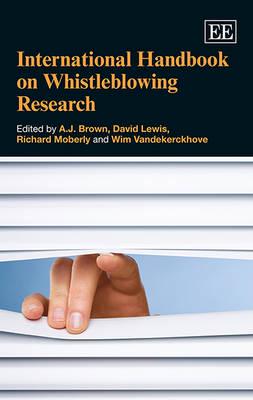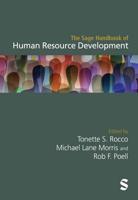Publisher's Synopsis
Whistleblowing the disclosure of wrongdoing by organizational insiders is vital to modern public accountability and integrity across all organizations and societies. This important Handbook offers original, cutting-edge analyzes of the conceptual and practical challenges that researchers face in order to better inform the way whistleblowing is understood and confronted by organizations, regulatory authorities and governments.
Featuring contributions from scholars and policy practitioners in a number of diverse fields - including sociology, political science, psychology, information systems, media studies, business, management, criminology, public policy and several branches of law - the book provides a comprehensive guide to existing research and blueprints for how new research should be conducted in the future. It covers conceptual and definitional fundamentals of whistleblowing and strategies for researching whistleblowing in an organizational context, as well as law reform, regulation, management practicalities and research ethics. It also charts the lessons of 30 years of empirical research and maps out new questions and projects for future decades.
This Handbook, with its unique perspective on the complex, multi-faceted and often controversial nature of whistleblowing research, will be a vital resource for researchers, policymakers and organizations around the world.
Contributors: B. Bjørkelo, R. Bosua, A.J. Brown, H.H. Bye, K. Crow, T. Devine, S. Dreyfus, T. Morehead Dworkin, B. Edwards, B. Fasterling, T. Faunce, P. Harpur, R. Lederman, D. Lewis, J. Leys, K. Loyens, J. Maesschalck, B. Martin, D.P. Meyer, M.P. Miceli, S. Milton, R. Moberly, F.M. Morgan Jr, J.P. Near, T. Nikolic, J. Olsen, M.T. Rehg, P. Roberts, M. Skivenes, R. Smith, J. Spencer, M. Spencer, S.C. Trygstad, E. Tsahuridu, T. Uys, W. Vandekerckhove, S. Walden, C. Wheeler, J. Zuckerman









